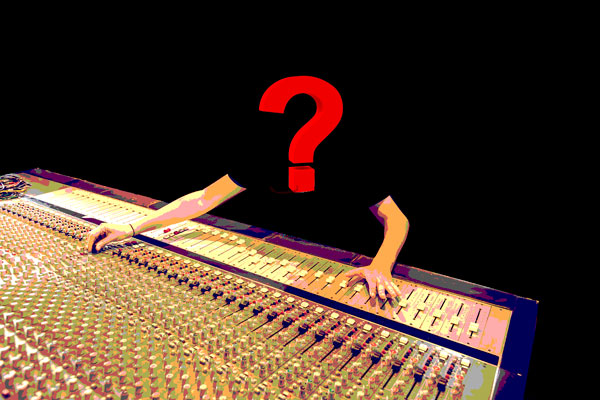Becoming a sound engineer.
Being a sound engineer isn’t just a job. It’s a passion, a lifestyle, a hobby, a big night out. It’s a way of life and it’s very consuming. But, if that’s the path you choose, it’s also very rewarding and enjoyable.
Sound engineers are not like rock stars. They don’t get noticed on the street, no one buys you drinks, no one helps you carry your own gear, and no one really gives a shit about you – except when they can’t hear the vocals – then you’ll get some attention!
So if you want to become a sound engineer, here are a few things to consider:
- Long hours, little pay
If you are in it for the money, don’t hold your breath! Sound engineering gigs, particularly when you start out, generally pay from $0 to not much. And you will, more often than not, put in more hours that anyone will give you credit for (or money). The budding sound engineer starts off doing free sessions, bedroom recordings, small gigs, sitting at a studio reception, cleaning, making tea, buying lunch, and not getting paid. But, if your heart is in it, you will persevere. Eventually your first paid gig will come and you’ll be proud as punch. If you’ve got the skills, the passion, and a likeable personality, the work will keep coming for you.
- ‘Can we go from the 2nd chorus’
You don’t have to be able to shred on guitar, slap the bass, or paradiddle on the snare to be an engineer. But you should have some skills as a musician – and I don’t mean that you need to play an instrument – I mean you need to be able to hear changes, follow a score, hear tonal qualities, identify arrangements, and be able to pick up mistakes and highlights in a take. These are not 100% necessary skills, but they will help you a hell of a lot.

- Did somebody order a therapist?
Sometimes I think that sound engineering is a bit like therapy. Mixing helps when I’m having a bad day, sure. I can get immersed in the music and zone out for a bit. But what I really mean about therapy is the way you are required to communicate within a band. Sometimes you’ll get a gig with a band you’ve never met and never heard of, sometimes you’ll get a gig with a band you know, and sometimes you’ll get the gig for your favourite artists 3rd album after the success you had on the first 2. So you may be working with people you’ve never met, holed up in a dark studio for 15 hours a day, 4 days in a row. By the end of the session, you don’t want to be rolling your eyes or cursing under your breath, and you definitely don’t want the band to be doing that either. The truth is, musicians play better when they feel comfortable to be themselves. Our job as a sound engineer is to help create that environment. Sometimes this is hard – especially if the singer turns up drunk, 2 days late, and everyone is pissed off with him. So how do we turn it around to make everyone perform at his or her best? Interpersonal skills play a MASSIVE part in sound engineering. I think they are probably the second most important part, next to your ears! You can learn tech skills and keyboard shortcuts on the job, but if you’ve got the personal skills, and a good sense of empathy, I’d be more likely to give you the gig.
As a sound engineer, I believe my main role is to capture the best performance. Sure, it helps if all the mics are in phase, the drum kit is tuned, and the room is sounding good, but if the band doesn’t perform with energy and passion, you’re starting on the back foot. So, spending the time to get to know their names, have a beer, and understand the songs is going to help you immensely. Don’t try and be the know-it-all and wank on about all the gear you are going to use. Chances are – they don’t care anyway. Take the time to understand their music and their energy as a group, capture a great performance and the music will almost mix itself. (almost).

Capturing the energy of TWO drumkits at once!





